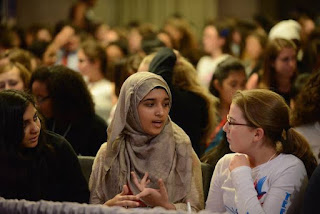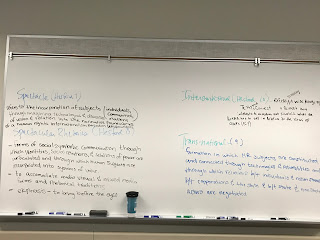Feb 20-22: Wrapping up Networks, Spectacles & Global Development

Dear All Good People, On Tuesday, we Skype with Rebecca Dingo; on Thursday, we pause for a mid-semester review and discussion of the Visually Annotated Bibliography (Step 2 of the Multi-Genre Project ). I may also work in a brief workshop on Harris's "moves" -- especially forwarding and countering -- and wrap up any loose ends you wish to have wrapped! In anticipation of our conversation with Dingo, I'm reminded that she actually provides us a methodology for textual work that reflects a different (but complementary) approach to Mao's comparative rhetorical approach. Dingo wants to give us a uniquely "transnational feminist rhetorical methodology" to identify how arguments circulate the way they do, how they shift as they cross geopolitical boundaries, and how they reflect ideas of production, labor, and global citizenship (Dingo 7). I suppose it makes sense to consider that all texts could be read as a set of conditions that are linked together...


